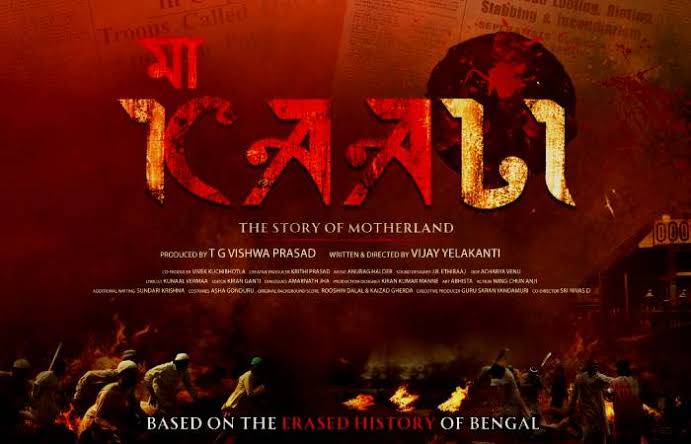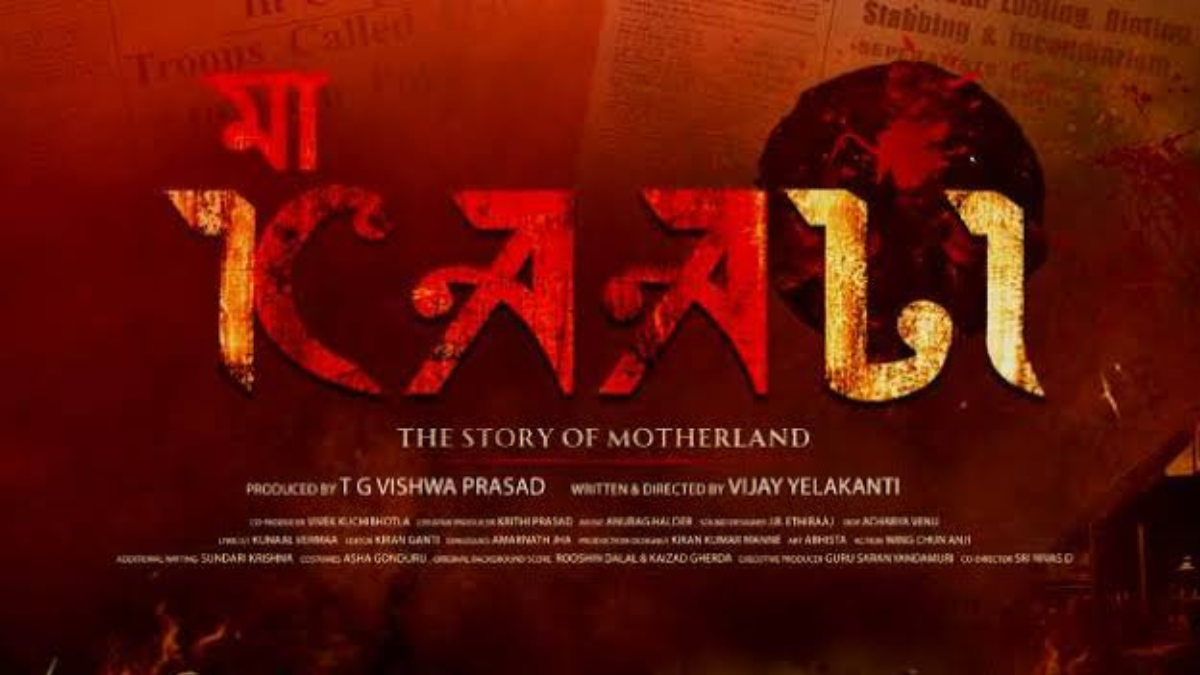The producers of ‘Maa Kali’ released a teaser on Thursday, presenting a film that revisits erased history with ‘Direct Action Day’ and ‘Noakhali Genocide’ at its core. Producers of the film ‘Maa Kali’, starring Abhishek Singh, a former IAS officer, released a teaser on Thursday that delves into erased history with ‘Direct Action Day’ and the ‘Noakhali Genocide’. The teaser, starting with a 1 minute 37 second clip, begins with a message to unplug earphones.The video showcases scenes from Bengal in 1946 during British India, highlighting it as a narrative that explores overlooked aspects of Bengal’s history.

Image Source: ntv english
Glimpses of the bloody incident of ‘Direct Action Day’ were shown
The teaser revisits the brutal and heartbreaking events of ‘Direct Action Day’, exposing the massacre of Hindus in Bengal and demonstrating how the repercussions of India’s partition extended across British India. Framed through the perspective of a Hindu family grappling with the profound atrocities, the teaser unveils the truth, offering insights into the catalysts, unfolding events, and far-reaching impacts of partition.
The emotional scenes stirred feelings deeply.
Through poignant scenes that evoke deep emotions, especially showcasing communal turmoil in Bengal, the teaser captivates viewers with its compelling narrative, impactful dialogue, and profound visuals. Scenes ranging from the marking of small Hindu girls’ foreheads to the desecration of a statue of Mother Kali will certainly leave a lasting impression on the audience’s minds.
While sharing the teaser, the makers captioned, “The brutal truth of partition, the bloody history of Bengal that no one dares to speak about. Witness the untold saga of tragedy.” Speaking about it, Raima shared, “As a Bengali, this story deeply resonates with the atrocities our people faced during the massacre. Despite being Bengali, I was unaware of many details of this heart-wrenching event, so when this film came to me, revealing the truth of Direct Action Day became a moral responsibility.”
‘The creation and release of “Maa Kali”

Image Source: IMDb
‘Maa Kali’ pays homage to those martyred in the cruel massacre and exposes the conspiracies of partition, riots, and politics that led to the greatest humanitarian crisis of the 20th century. Written and directed by Vijay Yelakanti, produced by Vishwa Prasad, co-produced by Vivek Kuchibhotla, and presented by People Media Factory, ‘Maa Kali’ was shot in Hindi and will be released in cinemas this year in Bengali and Telugu as well.
Moreover, ‘Maa Kali’ is a poignant portrayal of the harrowing events surrounding Direct Action Day in Bengal, depicting the brutal massacre of Hindus and the ensuing communal turmoil that significantly contributed to India’s partition. Directed and written by Vijay Yelakanti, the film explores the profound impact of political conspiracies and divisive agendas that fueled the violence of that era. It serves as a solemn tribute to the martyrs and a reminder of the deep scars left on the collective psyche of the affected communities.
Produced by Vishwa Prasad and co-produced by Vivek Kuchibhotla, ‘Maa Kali’ is a multilingual production filmed in Hindi, Bengali, and Telugu. The film’s primary objective is to delve into the depths of one of the most tragic chapters in Indian history, aiming to enlighten and bring awareness to the profound human toll of partition and communal conflicts. Through its compelling storyline and profound emotional resonance, ‘Maa Kali’ strives to connect deeply with audiences from diverse linguistic and cultural backgrounds. It offers a poignant exploration of the intricate layers of identity, weaving together narratives that reflect the enduring impacts of historical events on personal lives and collective memories.
The film’s narrative unfolds against the backdrop of partition-era India, capturing the tumultuous period marked by widespread displacement, violence, and the reshaping of communities. It delves into the lives of individuals and families caught in the throes of historical forces beyond their control, depicting their struggles, sacrifices, and resilience in the face of adversity.
‘Maa Kali’ aspires to not only recount historical events but also to provoke contemplation on themes of justice, reconciliation, and the enduring quest for truth and understanding. By presenting perspectives from different linguistic backgrounds—Hindi, Bengali, and Telugu—the film aims to foster a broader dialogue on shared histories and collective memories, transcending regional divides to resonate with universal human experiences.
Through its rich tapestry of characters and narratives, ‘Maa Kali’ endeavors to leave a lasting impact on its viewers, encouraging empathy, reflection, and a deeper appreciation of the complexities that shape our identities and histories. It stands as a testament to the power of cinema to illuminate the past, provoke thought, and inspire conversations that transcend borders and generations.



